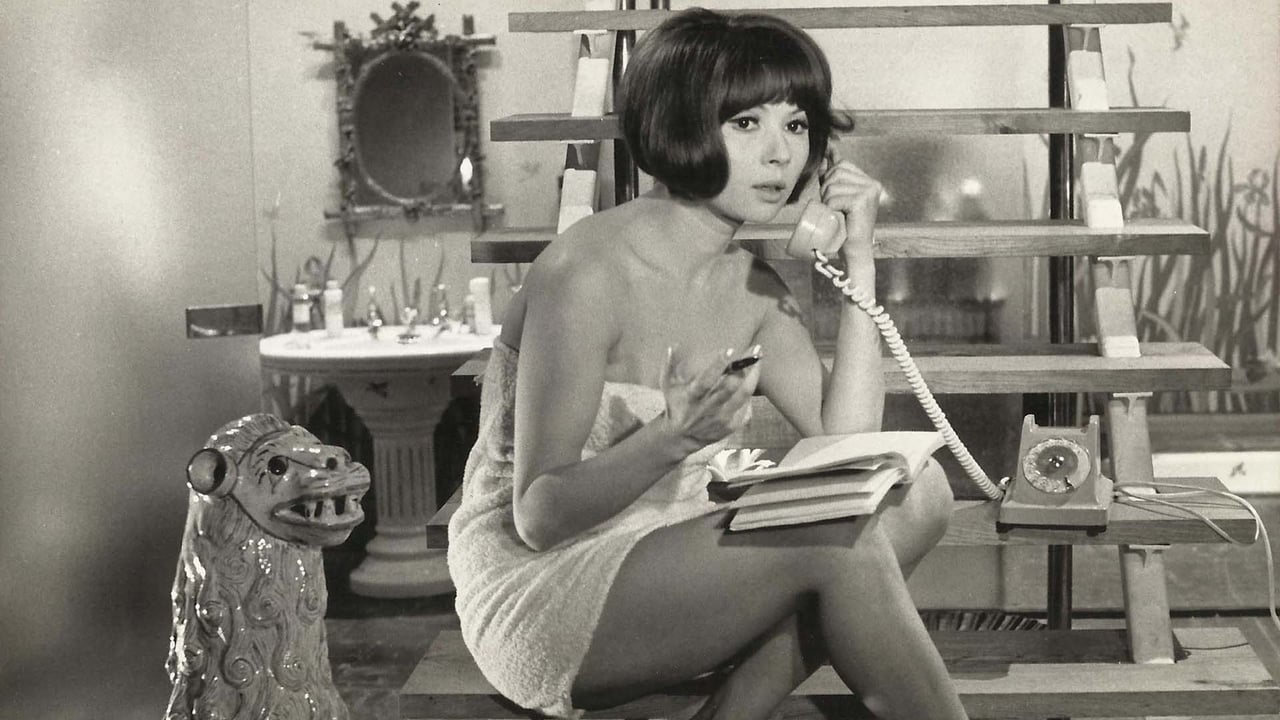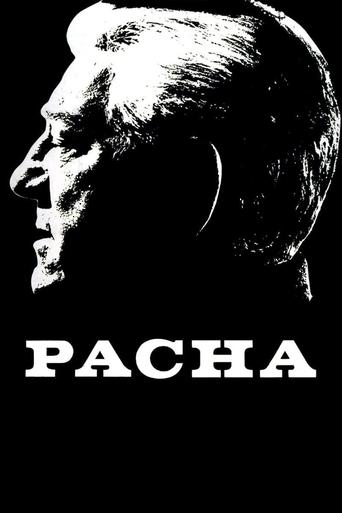Pacionsbo
Absolutely Fantastic
Aneesa Wardle
The story, direction, characters, and writing/dialogue is akin to taking a tranquilizer shot to the neck, but everything else was so well done.
Allison Davies
The film never slows down or bores, plunging from one harrowing sequence to the next.
Marva-nova
Amazing worth wacthing. So good. Biased but well made with many good points.
ONenslo
I think it an error to judge this film on plot alone - the story is the skeleton of a brightly stylized action fantasy which surely owes much to the garish Japanese crime films of the mid '60s. The police offices are not the grimy smoke-stained green-painted reality of battered wood desks and clattering file cabinets, but more nearly resemble the lair of the master-criminal with pivoting wall maps, poster-sized mug shots, and moving silhouettes cast on frosted glass walls. Police activity is a montage of blinking lights, fingers pressing buttons, walls of TV screens, streams of punched tape, and they thunder around the city in streamlined sports cars, not blocky grayish sedans. The inevitable night club is half surrealism, half agitprop performance, through which the stolid and always immaculate protagonist floats like an iceberg. The criminals drag their elaborate apparatus from the trunk of a huge sculptured American car and shoot gouts of flame and bazooka rockets in an eternally gray French winter, setting the snow itself on fire. They pour out of bright yellow mail trucks and blast machine guns at an army of police through obscuring clouds of drifting smoke. Le Pacha deserves to be viewed with fresh eyes because every scene and setting is stimulating and rewarding.
maxn
While the story is pretty run-of-the-mill detective stuff, there are some bits of cinematography that I found stunning: Léon's car sinking in the pond while Brigitte Bardot sings "Harley Davidson", the odd meeting between Quinquin and Nathalie in the very cool JNS3 shop, Quinquin's elimination of his co-conspirators at the farm, the details of the original heist that starts everything off. The police offices are surreally cool and modern, stuffed with (for the time) ultra-high technology.It's really not Gabin's best performance by a long shot; another reviewer amusingly mentions him "waddling in." He seems tired and like he's just phoning it in. I disagreed that Dany Carrel couldn't act; I thought she was pretty good (and really beautiful). André Pousse (Quinquin) was very effective as a ruthless murderer.It was fun to see Gainsbourg and his nicotine-stained fingers in the studio. The music was used to pretty good effect through the movie -- perhaps most strikingly, as I noted above, when Quinquin takes care of Léon at the pond. Two touches that amused me: Gabin's character was named Joss, which presages Joss Beaumont in Le Professional (1981), another Lautner/Audiard collaboration. More subtle: the railway station chief at Troyes speaks with a pronounced stutter; Troyes is best known for the coronation of Louis the Stammerer in 878.I also got a kick out of it since it was filmed the year I was born, and the world then looks so different from the way it does now.
XeniaGuberman
The movie is an unanticipated gem! I was expecting something of a hybrid between A. Delon's "Un Flic" and "Le Samouraï", but this one is fast paced and stylish. I enjoyed the inserts with "hippies" dancing and The Serge cameo, both lending some documentary feel to the movie. It is also one for a fan of coolest mid-century period, with characters carved out of the 40ies b&w gangster movies. Gabin's character is funny, policemen are efficient and gangsters dull-n-dumb: feels good. Music is an added bonus, especially if you pay attention to the words of the song that Serge sings: nice refrain to the plot. In short, great contemporary mix, very entertaining and a bit touching.
Laurent Mousson
Well, it may possibly not have aged that well, notably the story line, that's pretty linear, but this film nevertheless has a few decent assets.First, the cast, granted you get Gabin playing lead, or rather freewheeling lead, but look at the rest of the cast : an impressive array of distinctive supporting actors, many of which can be spotted in many other films of the day, who do a spendid job in here, even when silent. For example, André Pousse has the perfect face for the ruthless gangster job he does in the movie.Second asset is the mood, a sort of sticky, foggy, terribly square version of the late sixties. The final scene in a rundown factory is truly awesome. This atmosphere is enhanced by Serge Gainsbourg's splendidly sober score (Gainsbourg himself appears in one scene, singing the striking "Requiem pour un con"), based on mesmerising percussion loops (way ahead of its time) or very gentle hammond organ parts. Oh and one song by Brigitte Bardot ("Harley Davidson") is also featured as background to one scene.Third, which can only be fully appreciated with a good command of French, is the script and dialogue, where Michel Audiard delivers some of his hilarious trademark one-liners, such as "le jour où on mettra les cons sur orbite, ben t'as pas fini de tourner" ["the day they'll put gits on orbit, you'll be far from stopping to revolve"], which rely on slang and adequate delivery to give an unmistakable texture to the lines.The only real downers here are the embarrassingly "hip" nightclub scenes, complete with sitar-laden raga-rock, that are pretty unwatchable to today's standards.Last point : it's pretty violent for its time, but in an almost choreographed way, which could in a way evoke "Spaghetti" Westerns or Sam Peckinpah's work...An enjoyable slice of 1960s french cinema, simply does the job.

